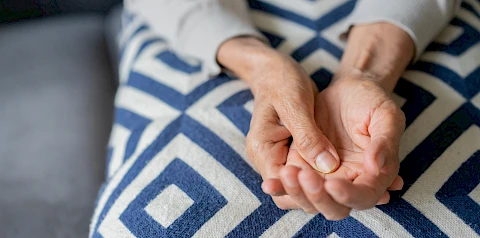
Parkinson's disease is a progressive neurological disorder that affects approximately 10 million people worldwide. It can significantly impact physical capabilities, but the emotional effects are often equally challenging to navigate. Understanding these emotional complexities is crucial for both seniors and their loved ones. With the right support and strategies, you can manage the emotional journey of Parkinson's. Explore the emotional impact of Parkinson's disease, common emotional responses like depression and anxiety, and how to manage these feelings.
The Emotional Impact of Parkinson's Disease
Parkinson's disease is more than just a physical affliction. The emotional toll it takes on individuals and their families is often profound and multifaceted. Common emotional responses to Parkinson's disease include depression and anxiety. Depression is much more common in people with Parkinson's than in the general public, affecting nearly half of them. Similarly, anxiety is often a concurrent issue, with individuals grappling with the fear and uncertainty that come with a progressive disease. The emotional toll extends to the person's family as well, with caregivers often experiencing feelings of stress, sadness, and helplessness.
Strategies for Managing Emotional Responses
Managing the emotional responses to Parkinson's disease involves a blend of medical and psychotherapeutic interventions, as well as lifestyle adjustments. Individuals may find therapies such as cognitive-behavioral therapy helpful in managing symptoms of depression and anxiety. Mindfulness and relaxation techniques can also play a crucial role in reducing stress and promoting mental well-being. For families, joining support groups can offer a safe space to share experiences, learn from others, and gain emotional comfort. Knowledge and understanding of Parkinson's disease can also go a long way in helping families cope, by reducing fear and uncertainty.
Caretakers Offers Emotional Support
Caretakers play a tremendous role in the emotional health of people with Parkinson's. They form an integral part of the support network, often becoming a primary source of comfort, reassurance, and practical help. At Senior Helpers Princeton, our caregivers go beyond merely assisting with daily tasks. They are trained to provide emotional support, recognize the signs of anxiety and depression, and assist with coping strategies. Our Parkinson's care services offer a holistic approach, addressing the physical and emotional needs of the people we help.
Loved Ones Provide Emotional Support
The role of loved ones in providing emotional support cannot be overstated. Their understanding, patience, and encouragement can make a significant difference in the diagnosed person's emotional well-being. Family and friends can provide effective emotional support by staying informed about Parkinson's disease, being patient, maintaining open communication lines, and offering reassurance that the person is not alone in their struggle. Encouraging seniors to pursue hobbies and activities they enjoy can also uplift their spirits.
Work With Senior Helpers Princeton
Parkinson's disease comes with a gamut of emotional impacts on those diagnosed and their families. While the journey may feel overwhelming, understanding these emotional responses and learning how to manage them can significantly improve the quality of life. Emotional support from caretakers and loved ones is vital - compassion, patience, and understanding can make all the difference. At Senior Helpers Princeton, we are committed to providing comprehensive Parkinson's care, offering physical assistance and emotional support. If you or your loved one is wrestling with Parkinson's in Princeton, Plainsboro, Pennington, or nearby, contact us. Our care team is here to walk with you along this journey, providing the support you need to live life to the fullest.